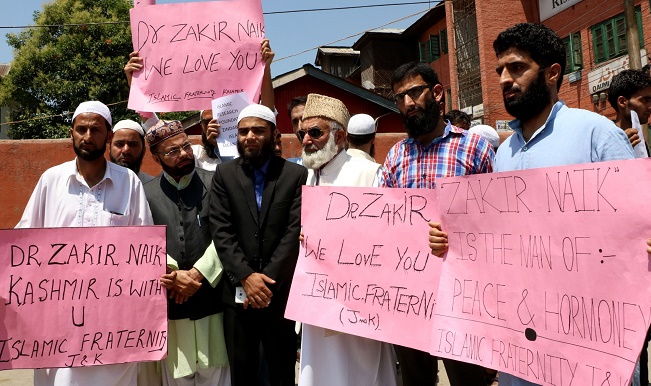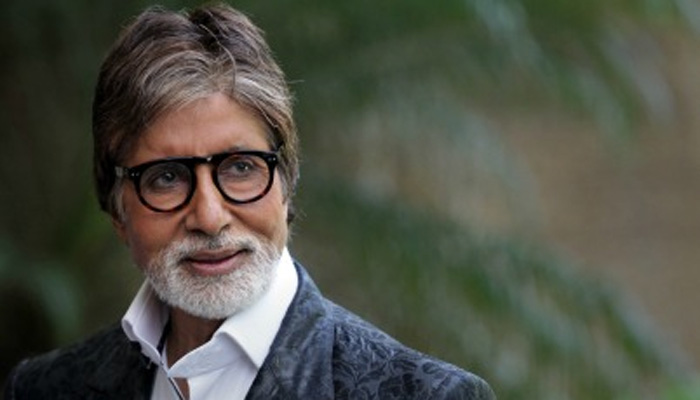Salafist preacher Zakir Naik’s controversial sermons strike at the root of the debate currently raging across the world over the link between radicalism and teachings of Islam. The smooth-talking televangelist’s regressive and problematic teachings, thoroughly dissected and discussed threadbare, strike at the very foundation of the pluralist cultural component of our existence and promotes a version of Islam that is dreary and incompatible with the modern world, asserted Sreemoy Talukdar of Firstpost.
International non-profit think-tank Gatestone Institute has stated that although Naik “is not directly involved in terrorism, he has reportedly inspired many to take to terrorism through his preachings.”
It wouldn’t have mattered had Naik been a fringe voice. But as we all know he is anything but a fringe voice. His global television empire, through Dubai-based Peace TV, reaches 100 million viewers worldwide in 125 countries. Barring a few nations he travels around the world giving lectures, holding seminars. He is equally popular in cyberspace through social media. A 2010 Indian Express poll had found Naik to be India’s 89th most powerful person, ahead of Nobel Laureate economist Amartya Sen or eminent lawyer and former attorney general Soli Sorabjee.
The debate over Naik, right at this moment, is aligned to the larger debate around fundamentalism, violence and Islam. The Islamic scholar preaches Wahhabism, the same strain of Islamic movement that inspires extremists worldwide. In July 2013, Wahhabism was identified by the European Parliament in Strasbourg as the main source of global terrorism.
The link between Saudi money and spread of Wahhabism as the most influential version of Islam right now doesn’t merit repetition. Saudi Arabia’s King Salman, incidentally, handed Naik personally the ‘King Faisal International Prize’ for being one of the most renowned non-Arabic speaking promoter of Wahhabism. An award that had a cash component of $2,00,000.
Now the question is, if Naik or his ideas cannot be gagged, how best to tackle him and his preachings? Most political leaders, analysts and liberals worldwide painstakingly insist that Islam is a peaceful religion and has nothing to do with hatred or violence and acts of terrorism. In India, the same explanation has been put forward during the debate over Naik. It is said that the televangelist’s preachings cannot be identified with the bona fide teachings of one of the world’s greatest religions. His views, insist liberals, are more of a perversion of a religion that is essentially peace-loving and tolerant.
The most important stakeholders in the debate in India over Naik, for instance, are the Muslim organisations. The media pressure over Naik, ever since two of the Dhaka bakery attackers were found to be “inspired” by Naik, has caused a clear political asymmetry in their reaction.
It won’t be an exaggeration to say that the larger orthodox but moderate Muslim society has been split down the middle over Naik, the founder of Mumbai-based Islamic Research Foundation, writes Sreemoy Talukdar.
On Monday, Abid Rasool Khan, chairman of state minorities commission serving Telangana and Andhra Pradesh, admitted that the issue has created a “vertical division” in the community. He said the Muslim community today has two views on Naik, with half of them saying his preachings are harmless and the rest contending he is wrong. Recent events actually prove Khan’s statement to be true.
The shias, who have been at the receiving end of Zakir Naik’s mockings, are expectedly up in arms against him. Maulana Yasoob Abbas, a top Shia cleric from Lucknow on Wednesday has demanded banning his speeches and also an investigative probe into his funding.
On the other side, Hyderabad-based Salafi organisation Jamiat-e-Ahle Hadees (JAH) maintained that Naik “is an Islamic scholar who has nothing to do with terrorism. It is wrong to accuse him of supporting terrorism,” said secretary Shafiq Alam Khan.
In troubled Kashmir, supporters of this controversial Islamic preacher took out a peaceful solidarity march in Srinagar to condemn any action that might be taken against the scholar.
While it is encouraging to note the churning that the Muslim community is undergoing in confronting radicalism in its faith, there still exists far too many wrinkles that are yet to be ironed out. The Naik debate will rage on, but the biggest positive to have emerged from it is that there are certain signs — feeble still — of an increasing acceptability of the fact that inherent radicalism poses far bigger threat to Islam than any foreign faith or idea can ever do.
Sourced from Agencies, Featured Image Courtesy: india.com
To read the whole strory click here http://www.firstpost.com/india/indian-muslims-bitterly-divided-over-zakir-naik-but-it-is-still-a-healthy-sign-2893016.html

























